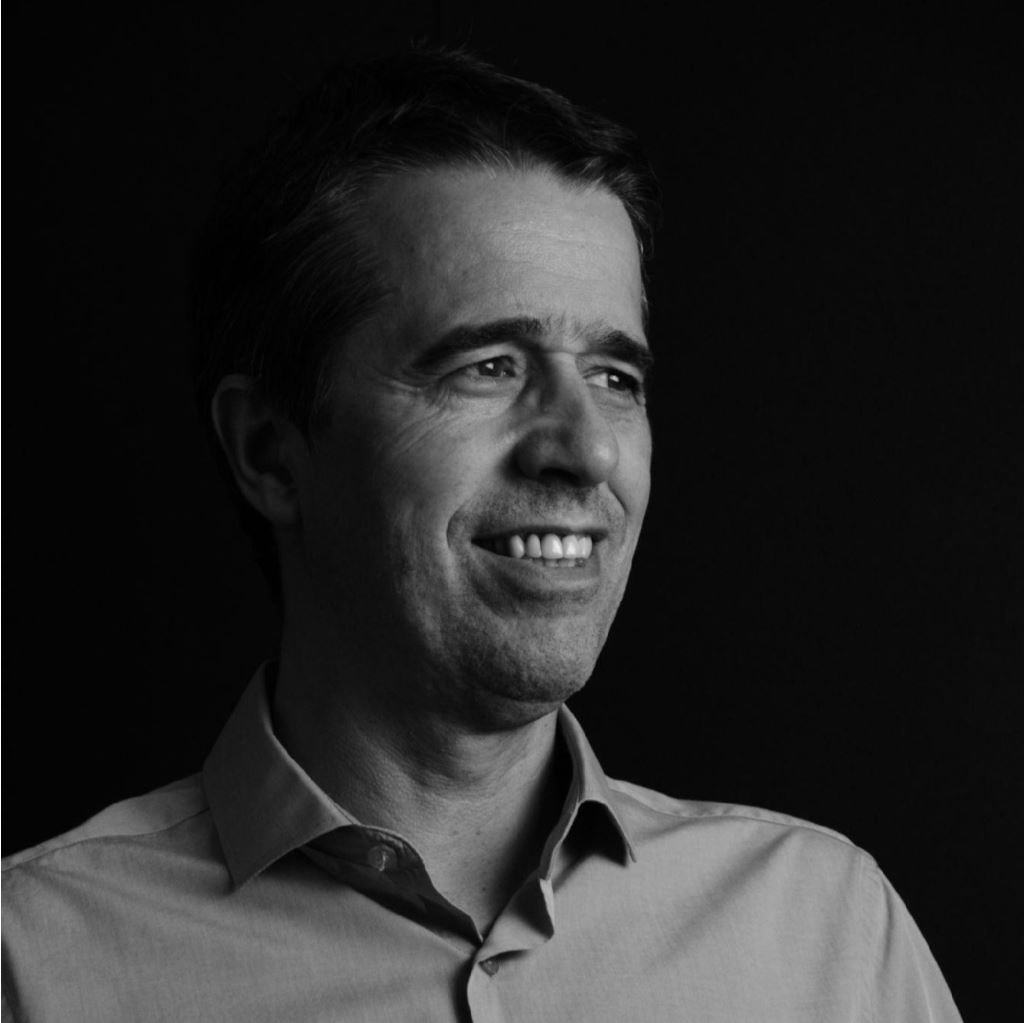By Sarah Phan
UC Santa Barbara music professor Joao Pedro Oliveira, who heads the department’s Composition Program, recently presented a visual music opera, “The 70th Week.”
Oliveira created and directed “The 70th Week” between March 2021 and September 2022, based on the Bible’s Book of Daniel, which features prophecies that include murder, treason, orgies, and torture.
The opera, part of the Corwin Chair Concert Series, was shown on screen at the Community Garden Workshop in downtown Santa Barbara late last month. It touches on war, destruction, and transformation, taking a non-traditional route by using computer-generated photos and sounds.
UCSB music professor Joao Pedro Oliveira created and directed “The 70th Week,” an opera inspired by the Book of Daniel from the Bible. This visual opera uses computer-generated images, like the one above, to represent the music.
In the opera’s filmed performances of dancers and singers, Oliveira highlights eight specific scenes from the Book of Daniel: Daniel’s Prayer, The Vision of Four Beasts, The Dream of the Statue, The Blazing Furnace, The 70 Weeks Prophecy, Belshazzar’s Feast, The Lion’s Den, and The End of Times. The texts he used are direct transcriptions of the original texts in the book, sung in Latin, Hebrew, and Aramaic.
In a recent interview, Oliveira discussed his inspiration for electronic music used throughout the opera and the works behind the visual opera.
Joao Pedro Oliveira, who heads the composition program in UCSB’s music department, specializes in electronic music and the visual representation of sound.
Q: As a composer, what led you to explore the electronic routes within your works compared to the traditional side of music?
A: I was trained in just instrumental music. But when I was a teenager [in Portugal], I was fascinated by rock groups that used synthesizers as part of their instruments. Then when I came to the United States to do my Master’s and Ph.D., the university where I was teaching, Stony Brook, had a very good electronic music studio. When I started listening to works of electronic music, I was fascinated by what we could do with them. And that’s one of the reasons why I decided to also work in that medium. This happened almost 40 years ago.
Q: What were some of the challenges you faced while working on this visual piece in the midst of a COVID lockdown? Was it similar to working on previous visual music pieces?
A: It was a COVID-oriented piece in the sense that it was meant to be without any singers or without performers on stage. It was challenging because I had to do all the recordings of the voices separately, then put them together, and also had to do all the recordings of the dance movements, and then put them together. It’s a little bit different than the other pieces because the human presence is there. While the other ones are just purely abstract, visuals, this one has a human presence. There’s another layer of challenge that happens. How does the dance work with the music? How does the dance explain the story? It’s all of that together.
“The 70th Week,” a visual music opera, was shown on screen at the Community Garden Workshop in downtown Santa Barbara late last month.
Q: What inspired you to compose music for the Book of Daniel?
A: I’ve wanted to write a piece about the Book of Daniel for many years, but never had the chance. This opportunity came, and I said, “Oh, yes, I’m going to take advantage and work on it.’ When I was younger and reading the book, I was fascinated by it, because it’s a very strange book. It has a lot of strange images, visions, and prophecies. It looks like all these strange visions could be used as visual elements.
Q: Why did you choose these eight scenes in particular, rather than tackling the entire story in the Book of Daniel?
A: The scenes were chosen as the most known scenes in the book. Anybody who has read the Book of Daniel remembers very well the scenes when his companions are thrown into the furnace and they do not burn. All of these are kind of a part of the collective imagination and knowledge of people who have read the book.
Sarah Phan is a third-year communication major at UC Santa Barbara. She conducted this interview for her class, Digital Journalism.




